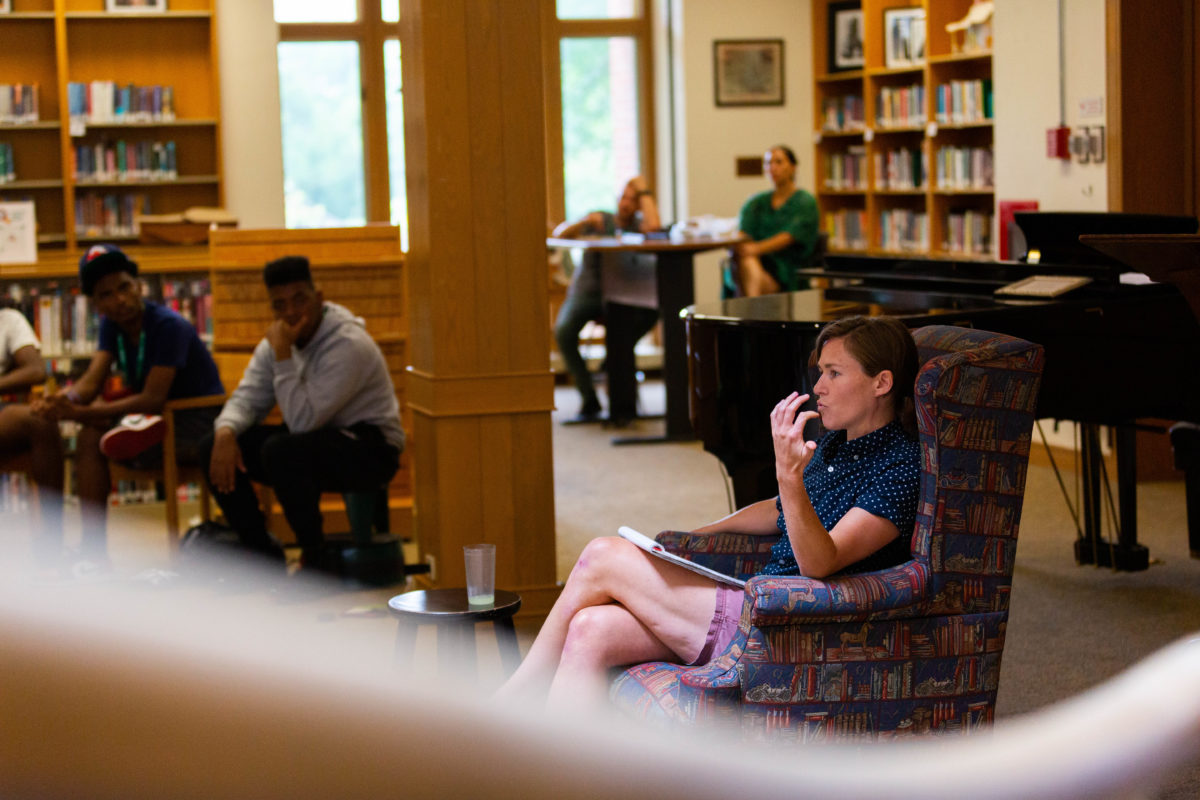One of the primary objectives of the National History Academy (NHA) is providing students with various perspectives on the workings of the United States electoral system. On July 8th, as a part of the Summer Residential Program, NHA invited Blair Bowie from Restore Your Vote to lead a discussion with the Academy students at the campus library.
From a young age, Bowie was fascinated by the cerebral depth studying the humanities demanded as well as how it afforded her a looking-glass into the past. Consequently, she took humanities papers at the Middleburg College before finding herself being swiftly captivated by law due to the multitude of possibilities it had to offer. She was particularly intrigued by how law was a useful tool in preserving democracy in America through representing issues and people who could not represent themselves. She therefore continued her studies at the University of Pennsylvania Law School. Whilst law school was challenging, she found that her high-school and university lacrosse career assisted her as it taught her lessons in dedication, leadership and grit. As a result, she successfully obtained a law degree and started working with the Greencorps on grassroots cases including the Fossil Fuel Divestment policy of 2011.
During the discussion with NHA students surrounding the policy, Bowie specifically discussed the ethics of large corporations being given 1st Amendment Rights and whether or not politicians should be allowed to hold shares in companies which they are making legislations about. Blair’s burgeoning career, however, soon attracted the Campaign Legal Center (CLC) which focuses on “advancing democracy through law” in order to create a fair Government which accurately represents its citizens.
Personally, Bowie has concentrated on various initiatives, most notably restoring voting rights to incarcerated, or formerly incarcerated peoples. Bowie decided to focus on restoring voting rights to the aforementioned groups due to the fact that certain groups are “targeted” by a lack of voter representation via incarceration. For example, despite African Americans constituting 12% of the US population, they constitute over 38% of prison inmates. This reduces the significance of the African American voting block, making politicians less likely to listen to the black community’s demands. Bowie described the legal process required to reinstate one’s right to vote to be “highly challenging” due to the sheer amount of legal litigation required, however she is extremely satisfied with what she has accomplished so far knowing that each voter which the CLC regains is a step closer to a more democratic state.
Bowie expressed her gratitude to the NHA for its role in continuing to emphasize the importance of history and the humanities, and likewise to all the attending students for being a generation that will continue to guide American democracy well into the future.
